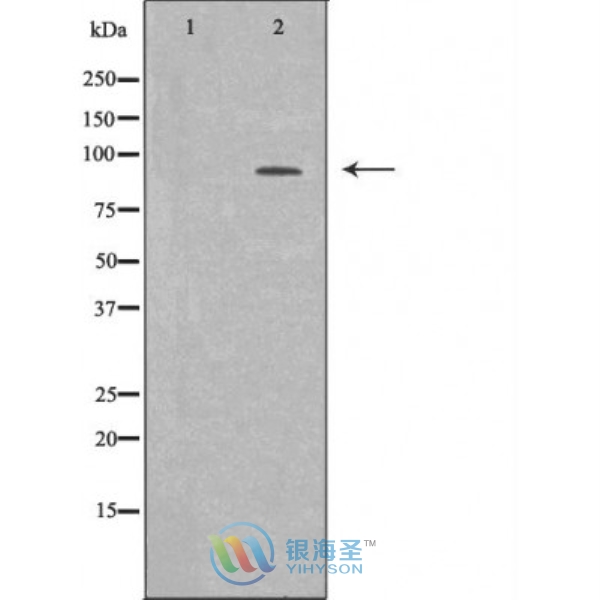
| Source: | Rabbit | Gene Id: | 26191 |
| Isotype: | IgG | Swiss Prot: | Q9Y2R2 |
| purity: | Affinity purification |
| Background: |
| PTPN22 (Lyp/PEP) is a cytoplasmic phosphatase expressed by hematopoietic cells (1,2). PTPN22 associates with the tyrosine kinase Csk to inhibit T cell receptor signaling through inactivation of Src kinases (3,4). Csk phosphorylates Src kinases on an inhibitory tyrosine, while PTPN22 dephosphorylates an activating site (4). PTPN22(-/-) mice have higher levels of activated Lck than wild-type, resulting in greater T cell expansion and increased serum antibody levels (5). Research studies have shown that a single-nucleotide polymorphism, 1858T of the PTPN22 gene which encodes the amino acid substitution R620W, confers increased risk for multiple autoimmune diseases including type I diabetes, rheumatoid arthritis, systemic lupus erythematosus, and Graves disease (6-9). Interestingly, although the R620W substitution disrupts the interaction between Csk and PTPN22, it is actually a gain-of-function mutation resulting in increased phosphatase activity (6,10,11). Recent evidence suggests that the autoimmune phenotype associated with the R620W variant is the result of increased calpain-mediated degradation and decreased protein levels of PTPN22 (12). |
| Reactivity | Human, Mouse, Rat |
| Tested applications | WB IHC |
| Clonality | Polyclonal Antibody |
| Calculated MW | 92 kDa |
| Recommended Dilutions |
WB 1:500-1:2000
IHC 1:50-1:200
|
| Immunogen | A recombinant protein of human PTPN22 |
| Storage | Store at -20°C or -80°C in PBS with 0.02% sodium azide and 50% glycerol. Avoid freeze/thaw cycles. |
| Synonym | LYP, LYP1, LYP2, PEP, PTPN8, PTPN22 |
沪ICP备15003525号-1 Copyright ©, 2013-2022, Yihyson All Rights Reserved.